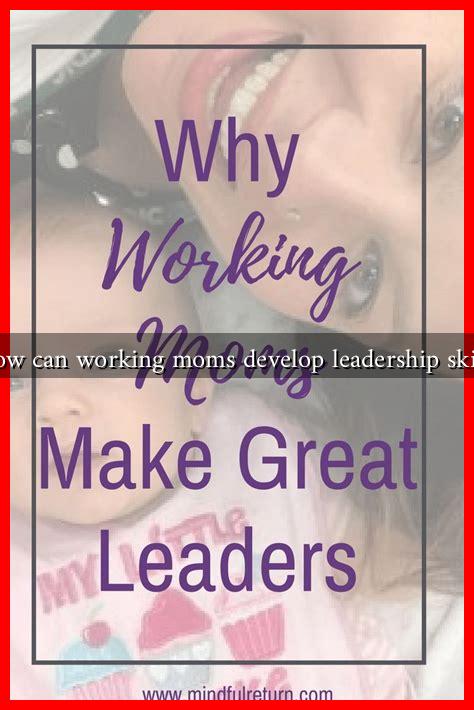-
Table of Contents
- How Can Working Moms Develop Leadership Skills?
- The Unique Strengths of Working Moms
- Strategies for Developing Leadership Skills
- 1. Seek Professional Development Opportunities
- 2. Build a Support Network
- 3. Embrace Mentorship
- 4. Practice Assertive Communication
- 5. Leverage Technology
- Real-World Examples
- Statistics on Women in Leadership
- Conclusion
How Can Working Moms Develop Leadership Skills?
In today’s fast-paced world, working mothers are increasingly taking on leadership roles in various sectors. Balancing work and family responsibilities can be challenging, but it also provides unique opportunities for developing essential leadership skills. This article explores effective strategies that working moms can employ to enhance their leadership capabilities, backed by research and real-world examples.
The Unique Strengths of Working Moms
Working mothers possess a unique set of skills that can be leveraged to develop leadership qualities. These strengths include:
- Time Management: Juggling work and family requires exceptional time management skills, which are crucial for effective leadership.
- Empathy: Mothers often develop a deep sense of empathy, allowing them to connect with team members on a personal level.
- Problem-Solving: Navigating the complexities of family life enhances a mother’s ability to think critically and solve problems efficiently.
- Multitasking: The ability to handle multiple responsibilities simultaneously is a valuable asset in any leadership role.
Strategies for Developing Leadership Skills
While working moms may already possess inherent leadership qualities, there are several strategies they can adopt to further develop these skills:
1. Seek Professional Development Opportunities
Participating in workshops, seminars, and online courses can provide working moms with the knowledge and skills needed to excel in leadership roles. Organizations like Coursera and Udemy offer a variety of courses focused on leadership and management.
2. Build a Support Network
Creating a network of fellow working moms can provide emotional support and practical advice. This network can serve as a sounding board for ideas and challenges, fostering a sense of community and collaboration.
3. Embrace Mentorship
Finding a mentor can be invaluable for personal and professional growth. A mentor can provide guidance, share experiences, and help navigate the complexities of leadership. According to a study by the McKinsey Global Institute, mentorship can significantly enhance career advancement opportunities for women.
4. Practice Assertive Communication
Effective leaders must communicate clearly and assertively. Working moms can practice these skills in both professional and personal settings. Techniques such as active listening, providing constructive feedback, and articulating ideas confidently can enhance communication skills.
5. Leverage Technology
In the digital age, technology plays a crucial role in leadership. Working moms can utilize tools like project management software (e.g., Trello or Asana) to streamline tasks and improve team collaboration. Familiarity with technology can also enhance decision-making and strategic planning.
Real-World Examples
Many successful women leaders have shared their journeys as working mothers. For instance, Sheryl Sandberg, COO of Facebook, has often spoken about the challenges of balancing work and family. Her book, “Lean In,” emphasizes the importance of women supporting each other in their professional journeys. Similarly, Indra Nooyi, former CEO of PepsiCo, has highlighted how her experiences as a mother shaped her leadership style, emphasizing empathy and resilience.
Statistics on Women in Leadership
According to a report by the World Economic Forum, women hold only 29% of senior management roles globally. However, companies with more women in leadership positions tend to perform better financially. This statistic underscores the importance of developing leadership skills among working moms, not just for personal growth but also for organizational success.
Conclusion
Working moms have a unique opportunity to develop leadership skills that can benefit both their careers and their organizations. By leveraging their inherent strengths, seeking professional development, building support networks, embracing mentorship, practicing assertive communication, and utilizing technology, they can enhance their leadership capabilities. As more women step into leadership roles, the workplace will become more inclusive and diverse, ultimately leading to better outcomes for everyone involved.
In summary, the journey of a working mom is not just about balancing responsibilities; it is also about harnessing experiences to cultivate leadership skills that can inspire others and drive change in the workplace.

